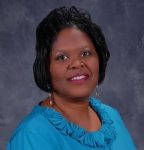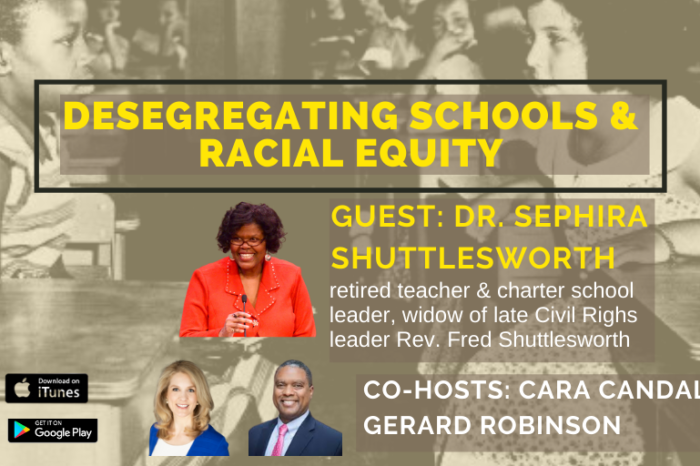Widow of Civil Rights Icon, Dr. Sephira Shuttlesworth on Desegregating Schools & Racial Equity
This week on “The Learning Curve,” Cara and Gerard are joined by Dr. Sephira Shuttlesworth, a retired teacher and charter school leader, and the widow of the late Birmingham, Alabama, civil rights leader, the Rev. Fred Shuttlesworth. Dr. Shuttlesworth shares her and her siblings’ experience attending a poor-quality segregated school in Tennessee, and how it motivated them to integrate an all-white elementary school in the 1960s. She also discusses her late husband’s central role in the Civil Rights Movement, bringing the Southern Christian Leadership Conference to Birmingham, as well as voter registration, and reforms to law enforcement and the legal system. She explores what inspired her to become a teacher and charter school leader, and why educational opportunity is so critical to fulfilling the vision of equality that civil rights leaders like the Rev. Fred Shuttlesworth articulated.
Stories of the Week: What will the U.S. Supreme Court’s recent decision in the Espinoza v. Montana Department of Revenue case mean for our neediest families? The Wall Street Journal reports that some affluent parents, concerned about school reopening plans this fall, are turning to alternatives, such as online classes, outdoor programs, or joining other households to create micro-schools. But would these same parents support school choice programs for other, less fortunate families?
Guest:
 Dr. Sephira Shuttlesworth is a retired teacher and charter public school leader with SABIS® Educational Systems. She and her siblings integrated the Pope Elementary School in Jackson, Tennessee. Sephira earned a bachelor’s degree in Elementary Education from Union University and a master’s degree from the University of Cincinnati. She received an honorary doctorate degree from the Global Evangelical Christian College and Seminary in Montgomery, Alabama. Dr. Shuttlesworth is the widow of the late Birmingham, Alabama, civil rights leader, the Rev. Fred Shuttlesworth.
Dr. Sephira Shuttlesworth is a retired teacher and charter public school leader with SABIS® Educational Systems. She and her siblings integrated the Pope Elementary School in Jackson, Tennessee. Sephira earned a bachelor’s degree in Elementary Education from Union University and a master’s degree from the University of Cincinnati. She received an honorary doctorate degree from the Global Evangelical Christian College and Seminary in Montgomery, Alabama. Dr. Shuttlesworth is the widow of the late Birmingham, Alabama, civil rights leader, the Rev. Fred Shuttlesworth.
Tweet of the Week:
US Rep. John Lewis has died. A son of sharecroppers and civil rights leader, he served 17 terms as a congressman from Georgia. He was 80. https://t.co/s9Pwmoi2fb
— CNN (@CNN) July 18, 2020
News Links:
Hechinger Report: OPINION: ‘Education tax credit programs extend choice to families who can’t afford private schools or to move to a tony community’
Wall Street Journal: Amid Coronavirus, Parents ‘Pod Up’ to Form At-Home Schools
https://www.wsj.com/articles/amid-coronavirus-parents-pod-up-to-form-at-home-schools-11595323805
Get Updates on Our Education Research
Recent Episodes:





















